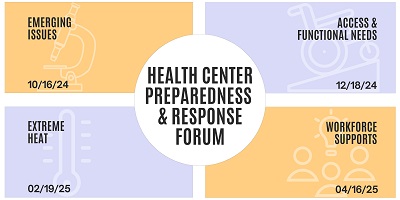"I've never seen devastation like this." Cars and trucks were tossed around like toys in Asheville, North Carolina, after catastrophic flooding from Helene. pic.twitter.com/4wA33g7VLB
— AccuWeather (@accuweather) September 30, 2024
The news and images coming out of the Southeastern U.S. in the aftermath of Hurricane Helene this weekend are heartbreaking.
At least 120 people in six states had been reported killed as of Monday afternoon. The devastation stretches from Florida’s Gulf Coast to the Appalachian Mountains in Virginia, with flooding and other fallout from heavy rain affecting communities in North Carolina, Tennessee, Georgia, and beyond.
The National Health Care for the Homeless Council sends strength and love to our friends and partners in communities that are hurting. And we want to express our deep gratitude for the emergency responders, social service workers, and health care providers who will give so much of themselves in the coming weeks, months, and years to help the people in their communities heal and recover.
Disaster research has shown two things clearly:
- People with the fewest resources, people with disabilities, and people in marginalized communities are more likely to be displaced from their homes by disasters than other people.
- Disasters exacerbate existing vulnerabilities.
People experiencing homelessness are disproportionately vulnerable to disasters. They have limited options for shelter and limited access to media or news. With lack of income and transportation and disproportionate rates of disability, illness, and addiction, it can be difficult to evacuate even when disaster is imminent. These factors are often co-occurring, leading to greater rates of injury and death and for survivors. And these factors create barriers to recovery after a disaster.
The housing crisis is worsening alongside the climate crisis. How can the HCH community be prepared?
Learn More or Request Assistance
We’ve rounded up some Council resources and other links to help health care providers understand the unique challenges faced by unhoused people during disasters, as well as links to information on Helene recovery resources.
NHCHC Resources
- Clinical Resources: Emergency Preparedness and Disaster Response
- Issue Brief: Integrating Homeless Service Providers and Clients in Disaster Preparedness
- Toolkit: Surviving Severe Weather: Tools to Promote Emergency Preparedness for People Experiencing Homelessness
- Request Technical Assistance: Whether your organization is recovering from a disaster or planning for one, the Council may be able to connect you to resources and information that will help.
Other Resources
- FEMA: How to help and get help after Helene
- FEMA: Federal Disaster Assistance: FEMA Guidance For HRSA Community-Based Service Delivery Grantees
- VOAD: National Voluntary Organizations Active in Disaster


Join HRSA’s Emergency Preparedness & Response Forum
Health centers serving priority populations including individuals experiencing homelessness are encouraged to join the upcoming HRSA Health Center Preparedness & Response Forum, four-part webinar series focused on preparing for and responding to a wide variety of emergencies. These sessions will promote promising practices and offer strategies for addressing challenges related to emergency planning and recovery.
Sessions are scheduled for Oct. 16, Dec. 18, Feb. 19, and April 16.

